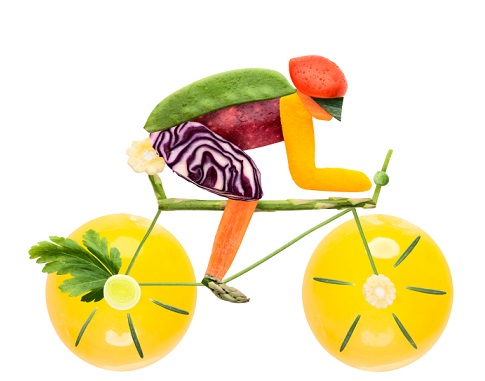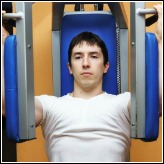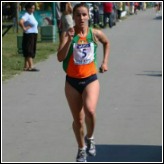Sports Nutrition for Kids

Is sports nutrition for kids as important as sports nutrition for adults? It is a well accepted fact that good nutritional habits are important for all serious sports people, but let’s examine the facts.
To maintain a healthy existence, adults need to consume an appropriate amount of:
- Proteins rich foods which includes meats, poultry, eggs, fish, beans and nuts
- Carbohydrates foods which includes brown rice, whole grain bread, cereals, fruits, vegetables and pasta
- Fats, especially of the unsaturated kind
- Vitamins & Minerals found in leafy vegetables, milk, cheese and yogurts
- Water
Well, the consumption of these food groups is the same for young people as well as adults.
It is also true that the ratios for the food groups above will and should be the same for kids as they are for adults. As an approximation, the ratios should be as follows:
- Carbohydrates = 60%
- Proteins = 15%
- Fats = 25%
Adults involved in sport will have slightly differing needs in nutrition than their less active peers, this is also true for youngsters. There is an optimum diet for the general population but, there are some special considerations to be mindful of when looking at sports nutrition for kids.
Sports Nutrition for Kids and Exercise
The amount of calories kids consume is important. Most children need between 1500 - 2500 calories a day for normal existence. If the child is involved in sports, these needs can easily increase by a further 500 - 1000 calories on each of the workout days.
The exact amount will depend on the type of sport they are involved
in and their level of activity in that sport. These additional calorie needs, must be
accounted for in their diets.
The type of calories young people consume is also important. Children can be fussy eaters; some don’t like vegetables, others like too many sugary things such as sweets and cakes.
With these preferences you can see how easily kids can miss out on essential nutrients in their diets. Particular care must therefore be taken to ensure children’s diets are well balanced and are not deficient in essential nutrients such as iron (useful for the oxygen transport around the body) and calcium (needed for muscle contraction).
Sports Nutrition for Kids and Growth
While our discussion is about nutrition for children who are involved in sports, for the most part, the nutrition which kids consume is primarily for the purposes of maintaining a healthy lifestyle and to ensure growth. With that in mind, the maturing body takes a lot of energy to do its job.
All the nutrients mentioned
earlier are not only helping the young body to improve in their chosen sport, they
are also laying down vital nutrients such as proteins and minerals to help the
body to grow healthy and strong.
Due to the competition for nutrients between the growing body and the extra energy requirements of their sport, I can not stress enough the importance of a well balanced diet based on the correct energy balance between the needs of the body and the energy needs for the sport or activity.
For example, if we look at calcium intake, calcium is needed for muscle contraction in exercise and for bone growth at a time when the child is going through puberty – we can clearly see where any deficiencies might lead.
Hydration and Other Considerations
Here are number of recommendations:
Hydration is important to all sports people, but it needs to be the right type of hydration. Water is good, fruit juice is good (best when diluted), but fizzy drinks aren’t the right hydration choices for a young sports person.
Meals should be small and taken often. I understand that this might be difficult especially when the child is in full time education, but if it can be arranged this would be the best option. Athlete should not have periods when they feel hunger. This usually leads them to make bad food choices.
We should encourage young sports people to get into the habit of eating foods which are not overly processed. This is especially true of carbohydrates. Once carbohydrates are broken down in the gut it is stored in the muscle and liver as glycogen.
Processed carbohydrates enters our system quickly, if we consume these types of carbohydrates at a time when our muscle and liver stores are already at their maximum, the additional glycogen must be stored as fat (bad news). Unprocessed carbohydrates breakdown much slower, this allows for a slower release of glycogen throughout the day and allows your glycogen stores to be replenished as it is used.
Sign Up For The Latest Track And Field News And Improve Your Athletic Performance!
From "Sports Nutrition for Kids" To " Faster, Stronger, Better – Your Shortcut To Improved Athletic Performance"
More information about a good sports nutrition diet in the Sports Nutrition Guide







